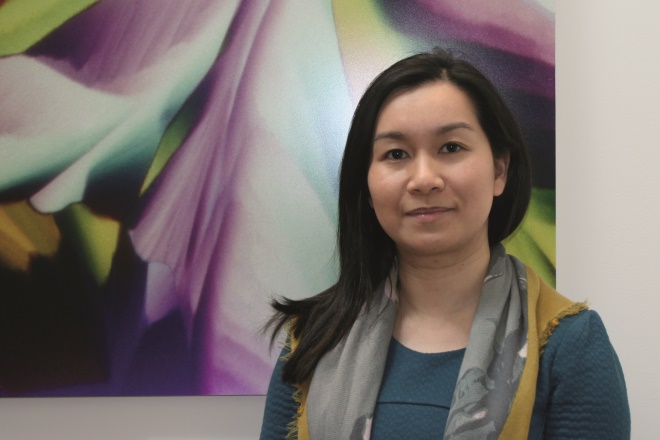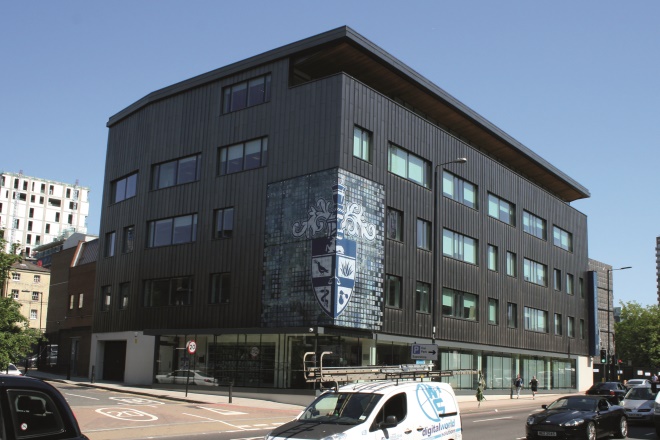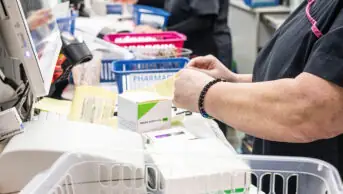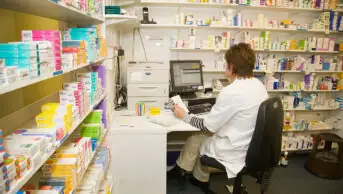
Shutterstock.com
The sudden requirement to make clinical, legal and ethical decisions alone can be a daunting situation faced by many newly qualified pharmacists. Esnath Magola, an education supervisor and lecturer at the University of Manchester, has studied the transition from trainee to registered community pharmacist in the first year of work and her research shows how newly qualified pharmacists can struggle with the suddenness of professional accountability.
The issue is, as she points out, in community pharmacy you can quite often be the sole pharmacist, suddenly in charge of an experienced and established team. “In other professions when you are newly qualified you would not expect to be the most senior person on the team. We found that lack of confidence was a big problem.” The major challenge is not around education as such, adds Magola — it is in providing support around decision-making, leadership and professional judgement.
This situation has lead to calls for support programme that builds a bridge from education to professional practice by introducing more formal training and a qualification akin to that expected of doctors, better preparing pharmacists for emerging roles and advanced clinical practice.
Getting on board
The Royal Pharmaceutical Society (RPS) launched its Foundation programme in 2014 (see Box) and, as of May 2017, 2,000 fledgling pharmacists have passed through. The programme is voluntary and serves to provide pharmacists with access to advice and support on anything related to practice and professional development in their first 1,000 days in their new role. It is also available to people returning to pharmacy after a career break or when changing sector. Pharmacists can also sign up if they would like a way to gauge where they are in their career development.
“The [RPS Foundation] programme itself is a workplace-based scheme that individuals can use to gather evidence of their practice and demonstrate their competencies. They do this through workplace-based assessment and feedback,” says Helen Chang, head of faculty and foundation at the RPS. “It is a structured programme and [users] have a tutor who provides them with support and discusses progress.”

Source: MAG / The Pharmaceutical Journal
Helen Chang, RPS head of faculty and foundation, says newly qualified pharmacists on the RPS Foundation Programme receive support from a tutor
The programme is based around four areas: patient and pharmaceutical care, professional practice, personal practice and management and optimisation, which are designed to be a ‘roadmap’ of the behaviours and skills required by pharmacists.
In July 2017, the faculty and education board at the RPS convened a ‘Task and Finish Group’ to review career frameworks and continuing professional development for pharmacists. The board, which is working with training bodies including Health Education England, recommended that a uniform pharmacy foundation programme be rolled out across the UK.
We proposed that every pharmacist following preregistration training should undertake a foundation programme
“We proposed that every pharmacist following preregistration training should undertake a foundation programme on the basis that it would provide continuing development and experience in every setting that the pharmacist works,” says Peter Kopelman, principal of St George’s University in London and chair of the board, which also recommended that the foundation programme include an annual professional review.
While not expected to replicate the model for doctors , early proposals do seem to show many similarities, including a defined programme of support, a record of progress and a consistent scheme of continuous assessment.
Starting point
Scotland and Northern Ireland are much further ahead in implementing foundation programmes and there are the various training offers available already in England. But what these cannot boast is the consistency a national programme can offer.
In March 2018, the chief pharmaceutical officers (CPOs) of England, Wales and Scotland wrote a letter to the RPS endorsing the recommendations of the RPS Task and Finish Group. In the letter, the authors tasked the board with taking the proposal forward.
Kopelman describes the response from the CPOs as “very positive” and adds they are keen to see progress in developing the scheme in much more detail by September 2018.

Source: Courtesy of Peter Kopelman
Peter Kopelman, chair of the RPS Faculty and Education Board, welcomed the chief pharmaceutical officers’ interest as “very positive”
The RPS has since created a new subcommittee of the Task and Finish Group to work on the proposal and has appointed Ian Bates, professor of pharmacy education at University College London’s school of pharmacy, as its chair.
Bates says the evidence for a foundation training programme is now incontrovertible. “We don’t need to reinvent the wheel,” he says. ”We now need to work together with employers and provider organisations to understand what concerted efforts stakeholders need to put this into action.
“This is about getting all the major actors and working together on the logistics which, to be honest, are not that difficult.”
Nationwide rollout
According to Dan Greer, programme leader for postgraduate pharmacy teaching at the University of Leeds, discussions in the North of England suggest that any national scheme would likely see newly qualified pharmacists automatically entered into a programme that offers a series of rotational placements in different working environments — for example, hospital, community pharmacy, and general practice. But exactly how this will be done remains to be seen.
“There was an agreement [the national foundation programme] would need rotational posts … but when you talk about how that would work it gets complicated,” he explains.
Greer agrees it makes sense to have a national programme, but questions how it would be put into place. He highlights the lack of available supervisors who could oversee newly qualified pharmacists’ progress: “That is the elephant in the room,” he says. “Community pharmacists are the largest group [of pharmacists] and a sizeable majority are working as sole practitioners.”
He adds there have been early discussions about a pilot of a national foundation programme, and agrees that the idea is a good one — the main concern now is over how it will work in practice. “Community pharmacists are independent contractors and the big multiples have their own training programmes. There are a lot of barriers to be broken down to sell this concept,” he adds.
The RPS framework is a useful starting point, Greer says, but it does not suit all sectors, such as pharmacists in GP surgeries, because it does not encompass everything that their role entails.
Changing environment
Another significant challenge is that in such a fast-moving industry, what community pharmacists are doing now is not necessarily what they will be doing in ten years’ time. How can the programme capture areas that do not currently exist?
In a report published in March 2018, the Pharmacy Schools Council, the collective voice of the UK’s 30 pharmacy schools, pointed out that the environment the pharmacist is working in is changing rapidly and, in the future, pharmacists will have many different roles, including clinical interactions with patients and being the medicines expert in a collaborative healthcare team.
Nigel Ratcliffe, chair of the council, welcomes the plans but says the level of training, education and value that the pharmacist brings to the multidisciplinary team is commonly underestimated.
We must make sure a foundation programme recognises all the roles a pharmacist can go into and is flexible
“There is a huge contribution already made by pharmacists and there is a need to recognise the massive amount of knowledge and expertise pharmacists can make in a variety of roles,” he says.
“We need to acknowledge that whatever we put in an undergraduate course, will never give you the finished product. We do need to have foundation years that build on that — not saying the initial training is inadequate.”
But Ratcliffe is very clear that we must not end up with a two-tier system and the experience of older pharmacists must be recognised.
There must be two aspects to foundation training, he explains, which must include a series of steps that experienced pharmacists can also move through. “Because we have never had this before we must be very careful not to disenfranchise those who have not had the opportunity to take structured training but who are incredibly well qualified.”
And he points out that there have already been major changes in education at an undergraduate level to prepare the pharmacists of the future. “We must make sure a foundation programme recognises all the roles a pharmacist can go into and is flexible,” says Ratcliffe. “Pharmacy can be very fragmented, and we have to make sure we are not duplicating and that we are recognising both educational qualification and experience.”
Looking to the future
In a recent blog post, Bruce Warner, deputy CPO for England, pointed out that there are now well over 20 recognised careers within pharmacy, arguing that tomorrow’s pharmacists must have the skills and knowledge required to take on the new roles.
The hospital foundation programme works really well for recruitment because pharmacists get to try everything
Ratcliffe predicts that five years from now, a foundation programme will be a non-optional part of pharmacy training and an important step for the profession in recognising the contribution it is making.
Roisin O’Hare, chair of education and development for the Guild of Healthcare Pharmacists, points out that where she is based in Northern Ireland, there has been a hospital foundation programme in place for a decade that was extended to community pharmacy a couple of years ago. “It has been really successful. My junior colleagues are much more well-rounded than I would have been and it works really well for recruitment because they get to try everything,” she says.
“In terms of a concept, it is fantastic, but one thing we have found is you have to establish posts across sectors— you can’t just have people coming to you for a bit but who you don’t employ.”
The experience has produced a robust pharmacy workforce that is flexible and able to move between the different sectors. That ability and desire to move between sectors, have a portfolio career, and plot a less conventional career path is all the more reason to knit together all of the training that is currently in place, and provide consistency wherever you are, she adds.
The edges between pharmacists and medics are blurring, says Bruce Warner, and “it is time for us to acknowledge that the skills we currently acquire as undergraduates are no longer enough”.
Box: Existing foundation programmes in the UK
The Royal Pharmaceutical Society’s Foundation programme
Split into two stages covering ten blocks of development, the Royal Pharmaceutical Society (RPS)’s Foundation programme is overseen by tutors either in the workplace or provided by the RPS. Pharmacists undergo a series of workplace-based assessments with their tutor, including direct observation of practical skills, pharmaceutical care assessment, consultation skills and case-based discussion.

Source: Nic Bunce / The Pharmaceutical Journal
The RPS launched its Foundation Programme in 2014
A self-assessment tool helps pharmacists identify their level of practice and guide their options for development.
At the end of both stages, the pharmacist undertakes a peer assessment and a progress review. When all four areas have been completed, pharmacists can submit their portfolio for review and undertake a final assessment.
Doctors’ foundation programme
In the UK, doctors undergo a two-year foundation training programme as a bridge between medical school and specialist or GP training, usually involving six different rotations in medical and surgical specialties.
In the first year, medical graduates begin supervised responsibility for patient care and consolidate the skills they learned as an undergraduate. They must pass this level in order to be granted full registration.
In the second year, doctors remain under supervision but take on increasing responsibilities, including management decisions and leadership. They also contribute more to the training and education of other healthcare professionals, including nurses and less experienced doctors.
Work-based assessments are recorded in an e-portfolio as the foundation doctor progresses. All doctors must achieve the same general clinical and non-clinical competencies.
Northern Ireland foundation programme
The Northern Irish foundation programme for patient-facing pharmacists takes two academic years to complete, and is voluntary.
The work-based programme allows pharmacists to develop a portfolio and undertake practice activities that help develop and demonstrate their competencies in a range of practice areas.
How this works in practical terms will vary depending on the employer, but the foundation programme outlines three core practice areas (dispensary services, medicines optimisation and evidence-based practice), where the foundation pharmacist will have the chance to gain knowledge, skills and experience.
Hospital and community or primary care pharmacists will then cover one further practice area, specific to their role.
At the end of their foundation period, pharmacists must submit their portfolio of evidence to the Northern Ireland Centre for Pharmacy Learning and Development, and undertake a final oral interview assessment. This involves discussion of a case-based scenario, a case presentation, and general questions on all areas of their portfolio.
If successful, they will be issued with a certificate of completion.


